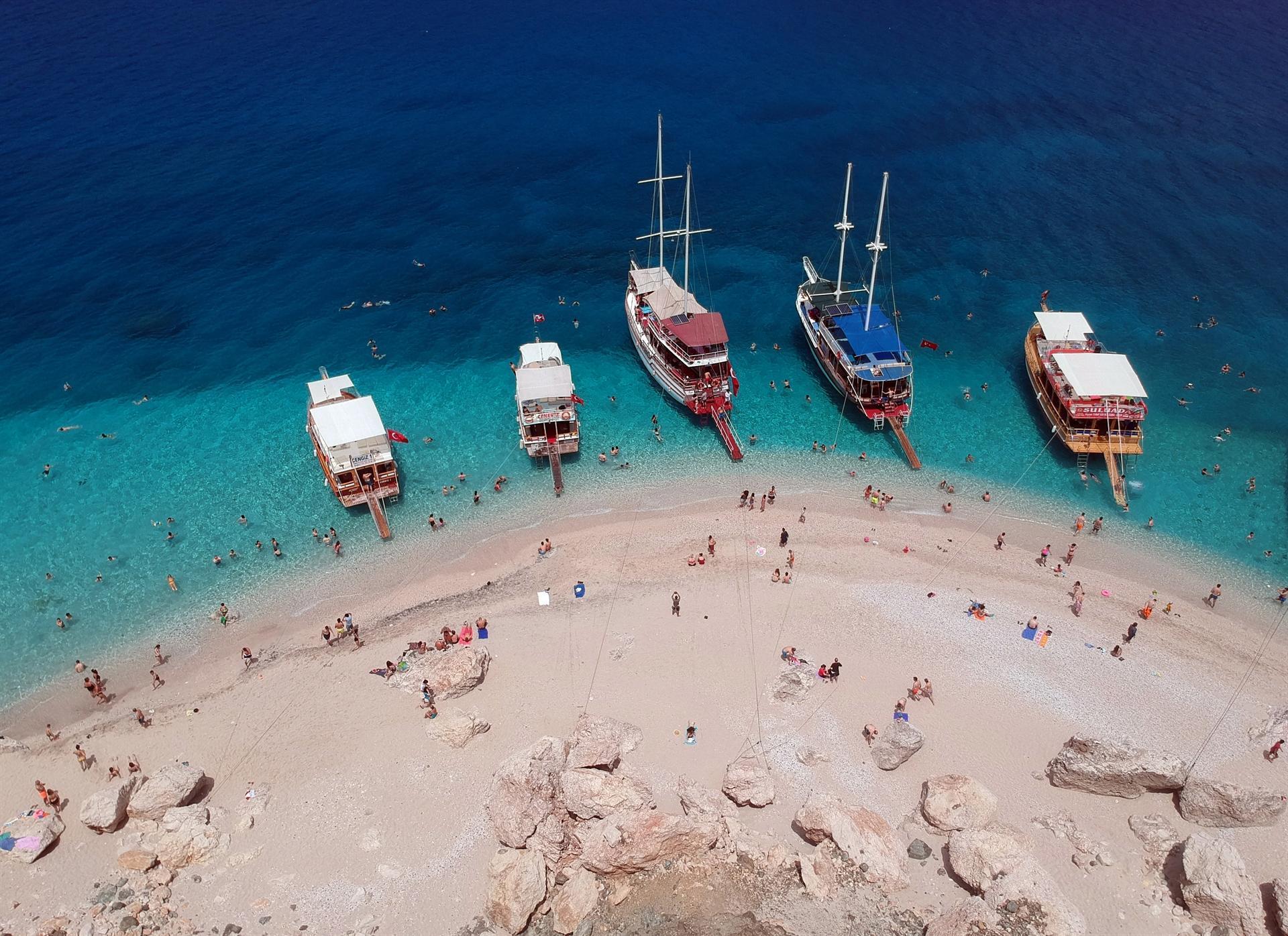
Suluada island in the southern province of Antalya - home to white sand, sparkling sea, Mediterranean monk seals and underwater caves for groupers - welcomes some 2,000 tourists a day during the summer.
Academics say Suluada should be declared a special protection zone to guard against pollution.
Located between the Adrasan and Gelidonya coves in the Kumluca district, Suluada was known as “Krambusa” in ancient times. There is no settlement on the island and its most important feature is that it offers a source of fresh water.
Suluada, which has been an important water resource for sailors throughout the ages, has many underwater caves around it. The white sand and pebble beach of the island, which is an important habitat for birds and sea creatures, is reminiscent of the world-famous holiday paradise of the Maldives.
Taking its name from the fresh water source, Suluada has been providing fresh water to fishermen for ages. The island rises in the form of a mountain in the sea next to the volcanic Taurus Mountains and is rich in biodiversity due to its natural reef region.
Suluada is home to all the fish in the Mediterranean ecosystem. Calcium carbonate in its rock structure and the microorganisms called foraminifera living in the sand give the white color to the island.
The island should be declared a special protection zone, said Professor Mehmet Gökoğlu with the Akdeniz University Faculty of Fisheries.
“One of the most important features of this region is that it is one of the most visited areas of the Mediterranean monk seal. It needs to be declared a private area and a special protected area. It is an untouched area and needs to be protected well. However, in the summer, hundreds of visitors come to the region every day. Precautions should be taken,” he said.
The professor emphasized that Suluada has become a life source for sailors and fishermen, who are dehydrated at sea, and underlined that it should be used very carefully without being destroyed.
The leader of the Börtü Böcek Nature Group, climber guide Cuma Gök pointed out that around 70 boats from Adrasan and around 30 boats from Kemer brought tourists to the region in the summer period.
“With tourists arriving by these boats, almost 2,000 visitors come here daily. The beach is now polluted. Even the color of the sand has changed. This is very sad. Suluada is a paradise, but protection is insufficient.”